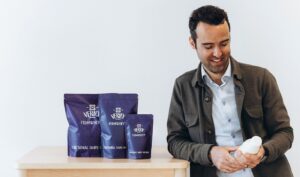Consumers actually want to know of emissions associated with the products they buy.
A whitepaper by a UK chilled food company found that 73% of consumers in the UK deem it important for their food to have a low carbon footprint but felt they didn’t have proper information or guidance pertaining a product’s footprint. Some 49% of them said they wanted to see carbon labelling on their foods, according to the Compleat Food report.
Carbon footprint labelling is one emergent way to give consumers the information they want. Traditionally, labels have been used to inform on nutritional content and ingredients. Now consumers can get insights into how much carbon was emitted during the manufacturing of a product and its transportation or disposal through carbon measurements on their packages.
Brands in the food space like Oatly and Unilever have been at the forefront of this trend while others like Nestle are reportedly considering carbon labelling. These strides are not just in the food space. In the cosmetic world, brands like Cocokind and L’Oreal are adopting this practice, and for good reason.
UK company Reewild is going beyond carbon labelling by offering consumers, food brands, and retailers a carbon tracking app. The app, which is still in beta — the tech word for the first version, trial phase — is set to be launched next month in the UK and could scale to the wider EU region and the US in due course.
“Right now, there are millions of people out there who want to make greener choices in terms of what they buy and what they consume, but often lack the information to make those decisions. So we’ve built an app that enables them to look up any one product or scan a barcode to see exactly what the emission of that product is,” Kit Nicholl, cofounder and COO at Reewild tells AFN.
How it works
Reewild’s mobile app has a variety of food products classified by their carbon footprint. Consumers can get a product’s estimated emissions by picking an item from a supermarket, for instance, scanning its barcode or searching for the product on Reewild’s app.
To populate its database, the startup works with brands to determine their carbon footprint scores, taking into account ingredients, packaging, transport and other emission factors and adding them to the app. It also leverages several open-source databases to provide estimated scores, which are used to ensure the database is as comprehensive as possible.
“Data integrity is vital to our app, so we’ll be providing users with a data accuracy dial to clearly signal how each product was scored. If brands want to achieve more accurate product scores and learn how to reduce their impact, we are at their disposal to collect primary data and provide that carbon footprint scoring,” says Nicholl.
Some of Reewild’s data are also sourced from brands that have already done their own carbon scoring.
Users will get this data in the app in units that Reewild calls ‘carbon calories’ a more user-friendly term, according to Nicholl. Usually, a carbon footprint is presented in tonnes or kilograms emitted, which often has little to no meaning for the layman.
“We wanted to make it similar to calorie tracking, which is already engrained behavior among consumers,” he says.

According to Nicholl, users are given a calorie-based goal; a figure derived from Reewild’s recommended threshold of 1.85 kg CO2e per year, which is calculated based on the global carbon budget for the food system set by the EAT-Lancet Commission.
“We’ll give a few different options for users to choose from, depending on their current level of emissions and their level of ambition. Our main objective here is behavior change and helping people to progressively lower their footprint. We, therefore, don’t think it would be particularly empowering to immediately impose a base goal that is considerably lower than their current dietary emissions and that the vast majority of people would exceed on a daily basis; it would be highly discouraging,” he says.
Reewild is also essentially offering a free app to serve as an educative platform that helps users understand their footprint and live more sustainably. However, users can unlock benefits with a premium starting from £4.99, giving them access to discounts from select brands, promotions, and rewards, to invest in carbon offsets and contribute to reforestation efforts.
Carbon scoring as a service
As pressure for carbon footprint declaration mounts, brands will have to find ways to score their products.
This need has paved the way for another of Reewild’s offerings – carbon scoring as a service, where the startup researches and compiles ingredient emission data.
“There’s still a big chunk of the market that hasn’t done it yet and isn’t planning on doing it immediately. This is going to become a reality for everyone in the next couple of years. It will be mandated, at least here in the UK and in the European Union. It’s going to be regulated in the next year or two. So everyone’s going to have to do it,” Nicholl says.
Carbon scoring could be a crucial need for brands, going by industry happenings. Over a decade ago, Tesco, which had earlier pledged to use carbon labels, went back on this pledge citing it took several months to determine the footprint of each product, showing just how difficult and time-consuming accurate carbon scoring is. Further, the mega-retailer claimed the withdrawal of their pledge was partly due to the failure of other retailers to follow suit in carbon labelling, which they had not anticipated.
According to Nicholl, brands with sustainability at heart are very keen to undertake carbon scoring as declaring their environmental impact offers a competitive advantage.





